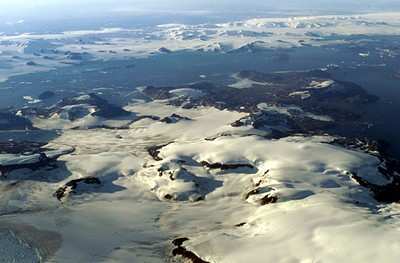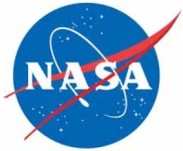Will Search For Extreme Organisms
In early February, NASA's Richard Hoover will lead a team of
world class explorers to a remote location in Antarctica to search
for unique, never-before identified microbes. NASA and its partner
organizations study the potential for life in such extreme zones to
help understand the limitations of life on Earth, and to prepare
human explorers to search other worlds for signs of life in the
universe.

Within the next two decades, NASA will return humans to the
lunar surface to establish a permanent presence. Expeditions to
remote, extreme areas of Earth yield valuable discoveries about our
planet, but also provide opportunities to test mission concepts and
equipment for future planetary exploration.
In the extremely hostile environment of ice covered Antarctic
lakes, Hoover hopes to find a new species of "extremophile" or a
hardy life form that exists and flourishes in conditions hostile to
most known organisms. The expedition will be conducted in two
phases with an initial mission focusing on research in the lakes
and glacial ice of Schirmacher Oasis region with a fly over of the
Lake Untersee region of Antarctica. Lake Untersee is a perennially
ice-covered hyper-alkaline lake with the highest production of
methane of any natural aquatic system on the planet Earth. The
science team is interested in assessing this lake and other lakes
and glacial ice in the region for microorganisms and
extremophiles.
"Most of the bodies of our solar system are extreme
environments. But we can also study environments that are hostile
to life right here on here on Earth." said Dr. Richard Hoover, NASA
astrobiology. "For example, Lake Untersee, the largest lake in
Antarctica, is more alkaline than household bleach. If we find
microorganisms in this water, it will be first time life has been
found in such an environment. Even if we don't find life, it will
be exciting: we will have found the first body of water on Earth
with no natural aquatic life."
This expedition is an international collaboration between NASA,
the Arctic and Antarctic Research Institute of the Russian
Federation, the Planetary Sciences Foundation, and the Tawani
Foundation, a not-for-profit philanthropic foundation headquartered
in Chicago, IL. The expedition is fully funded by the Tawani
Foundation. This mission is being carried out with critical support
from the Antarctic Logistics Center International in Cape Town,
South Africa, and is the first of two international expeditions
planned in 2008.
 In addition to Hoover, the first
team of explorers for this reconnaissance expedition includes James
N. Pritzker, Tawani Foundation, Chicago, IL; Dale Andersen, Carl
Sagan Center for the Study of Life in the Universe, Mountain View,
CA, Valery Galchenko, Winogradsky Institute of Microbiology,
Moscow, and Art Mortvedt, Polar Exploration, Ltd., Manley Hot
Springs, AK. All experienced polar explorers, the team will spend
between 10-15 days in Antarctica as guests of the Russian Novo
Research Station and the Russian Artic and Antarctic Research
Institute.
In addition to Hoover, the first
team of explorers for this reconnaissance expedition includes James
N. Pritzker, Tawani Foundation, Chicago, IL; Dale Andersen, Carl
Sagan Center for the Study of Life in the Universe, Mountain View,
CA, Valery Galchenko, Winogradsky Institute of Microbiology,
Moscow, and Art Mortvedt, Polar Exploration, Ltd., Manley Hot
Springs, AK. All experienced polar explorers, the team will spend
between 10-15 days in Antarctica as guests of the Russian Novo
Research Station and the Russian Artic and Antarctic Research
Institute.
The full-up expedition planned for late 2008 will include a team
of 12-14 researchers and educators. The team will return to the
Schirmacher Oasis and will also include a focused research effort
at Lake Untersee. In addition to an international science team from
Russia, Austria, and the United States, the team will also include
two teachers, one from a high school and another from a junior
college in the Chicago area. The teachers are being included to
further enhance student interest in math and science and to inspire
a next generation of explorers.
 ANN's Daily Aero-Linx (05.06.25)
ANN's Daily Aero-Linx (05.06.25) ANN's Daily Aero-Term (05.06.25): Ultrahigh Frequency (UHF)
ANN's Daily Aero-Term (05.06.25): Ultrahigh Frequency (UHF) ANN FAQ: Q&A 101
ANN FAQ: Q&A 101 Classic Aero-TV: Virtual Reality Painting--PPG Leverages Technology for Training
Classic Aero-TV: Virtual Reality Painting--PPG Leverages Technology for Training Airborne 05.02.25: Joby Crewed Milestone, Diamond Club, Canadian Pilot Insurance
Airborne 05.02.25: Joby Crewed Milestone, Diamond Club, Canadian Pilot Insurance




